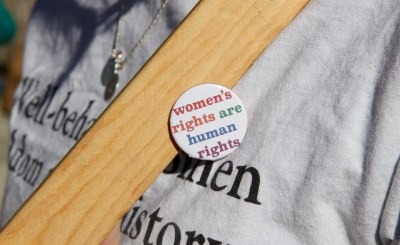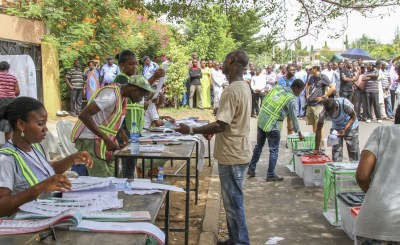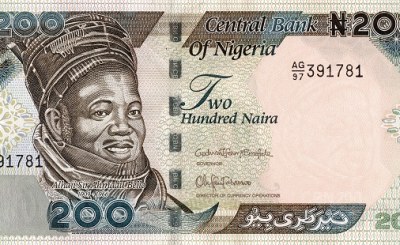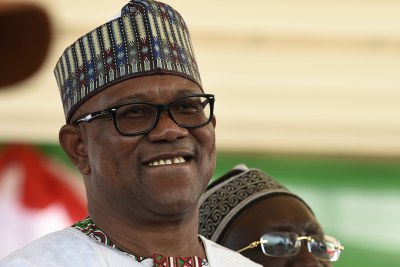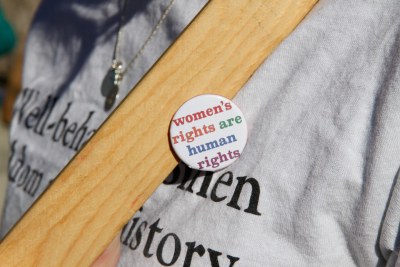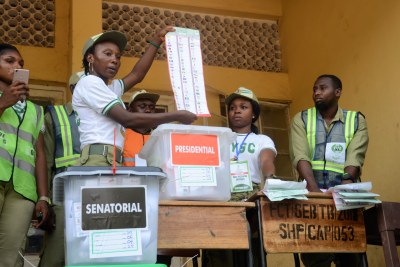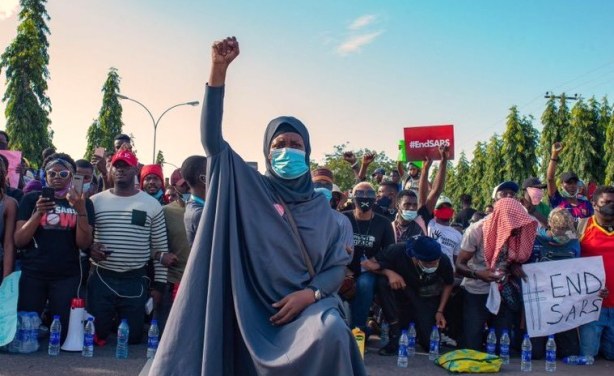-
Nigeria: Gender Equality in Nigeria - Three Reasons Why Women Aren't Represented in Politics
The Conversation Africa, 19 February 2023
In March 2022, Nigerian women suffered backlash in their pursuit of gender equity. Five gender bills presented to the National Assembly were thrown out. Read more »
-
Nigeria: Taking a Stance On Feminists' Prejudice Against Religious Minority Women
IPS, 17 February 2023
Since researching the experiences of gender discrimination against women in poverty who belong to religious minorities, many fellow feminists have turned their back on me. Read more »
-
Nigeria: 'Political Parties' Manifestoes Are Not Reflective of Gender-Specific Issues'
This Day, 15 February 2023
Ahead of the forthcoming general elections, the Country Director, Plan International Nigeria, Charles Usie, has stated that political party manifestoes are not reflective enough of… Read more »
-
Nigeria: Election - Security Concerns Stand Out for Voters
DW, 16 February 2023
Voters in Nigeria will choose new government leaders in a few days. Many Nigerians are concerned about which candidates offer new ways to tackle the West African country's state of… Read more »
-
Nigeria: Govt Denies Plotting to Overthrow the Election As Violence Spreads
Scrolla, 18 February 2023
The Nigerian government has denied that president Muhammadu Buhari and his circle are planning to scupper next weekend's elections and install an interim government by creating… Read more »
-
Nigeria: Buhari's Unforced Error
CFR, 17 February 2023
A poorly thought out and poorly timed monetary policy sends Nigeria into a tailspin. Read more »
-
Nigeria: Nigeria 2023 - a Poll Like No Other
Premium Times, 19 February 2023
This the first election in Nigeria in which the military will not be on the ballot or in the background as such. Read more »
-
Nigeria: Buhari Vows to End Hardship Faced By Nigerians Over Currency Swap
This Day, 19 February 2023
* Appeals for more patience as necessary actions are taken to ease pains Read more »
Why Nigerian Women Aren't Represented in Politics
Nigeria is Africa's most populous democracy but has among the lowest number of women in office in the world. Women make up about 49% of Nigeria's population. Their representation in government is a far cry from what' has been achieved in other countries on the continent, writes Sharon Adetutu Omotoso for The Conversation.
According to a report by Premium Times, only 5% of Nigeria's federal lawmakers are women, one of the lowest representation rates globally. Compared with the statistics of the parliamentary elections of 2015 and 2019, female representation in the 2023 polls is the worst, despite increased lobbying in the last three years for gender balance and more active female participation in politics.
In March 2022, Nigerian women suffered a backlash in their pursuit of gender equity. Five gender bills presented to the National Assembly were thrown out. The rejection of the bills showed that the assembly wasn't interested in gender parity in politics. It has 469 members - with only 21 of them women.
Omotoso highlighted three main reasons for the exclusion of women. Firstly, there's a lack of voter education. Secondly, women are disproportionately excluded from policy-making domains because more live in poverty than men. Thirdly, there is more moral scrutiny of women than men.
Nigerians will pick a candidate to replace President Muhammadu Buhari on February 25, 2023. But only one of the 18 candidates is female - Ojei Chichi of the Allied People's Movement (APM). In the governorship races, there is only one woman across the 36 states - the APC's Aisha Binani in Adamawa state.
Civil society leaders and other experts say women's political participation in Nigeria is below global standards.
InFocus
-
Conducted in early December 2022, the results released by Atedo N. A. Peterside Foundation, ANAP, Foundation showed that 23% of voters were willing to vote for Pete Read more »
-
Patriarchy is a socio-cultural system that privileges maleness over femaleness and enthrones masculine domination of women. This system is evident where authority is vested in men ... Read more »
-
Nigerians are facing petrol shortages and chaos at banks over a new currency swap ahead of the presidential and parliamentary elections on February 25, 2023. Despite the ... Read more »
-
Nigeria's House of Representatives may have buckled under pressure from women across the country, rescinding its resolution on three gender bills it earlier threw Read more »
